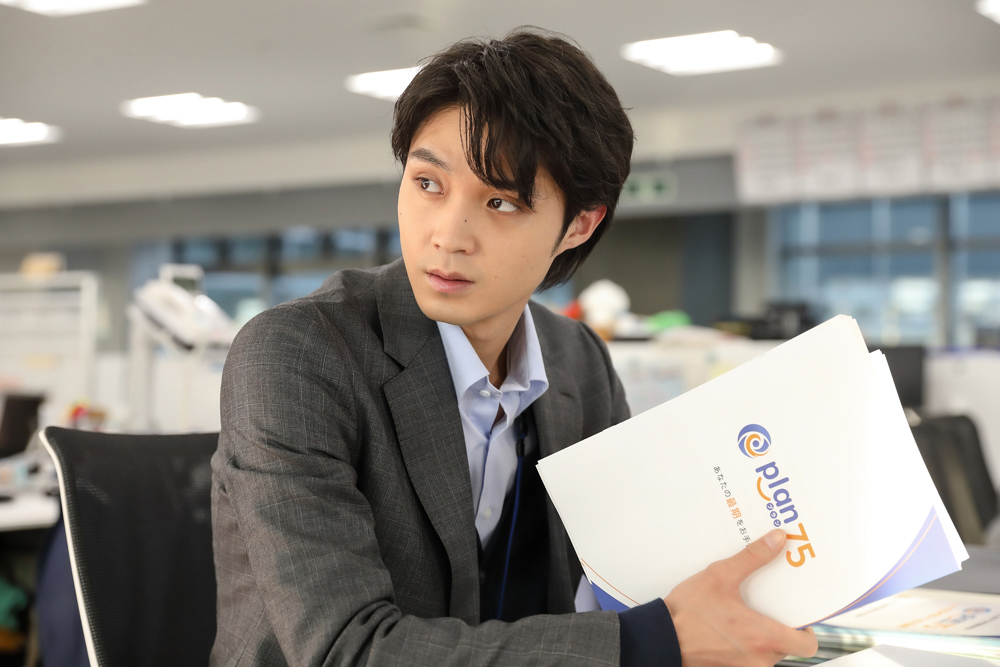!["PLAN 75" Director Chie Hayakawa National trait of being complicit in an inhumane system without malice or awareness [Director's Interview Vol.216]](https://cinemore.jp/images/fa22bb143c8793150d9eba37dffdcda17da7f83811c3b167d78fc3aa19d8a5d1.jpg)
"PLAN 75" Director Chie Hayakawa National trait of being complicit in an inhumane system without malice or awareness [Director's Interview Vol.216]
Plan 75 is a system that allows people over the age of 75 to choose their own life and death as a measure to cope with an aging society with a declining birthrate. I feel like this kind of subject matter has often been treated as a sci-fi category, but the movie ``PLAN 75'' is set in Japan, the country where we live right now. And there is no sense of science fiction-like fiction, and the lack of any sense of incongruity with the real world is frightening.
Based on such an intriguing setting, director Chie Hayakawa created a movie that is entertaining, starring the national star Chieko Baisho. What is noteworthy about his skill is that he skillfully and directly incorporates "awareness" about us Japanese people into this entertainment. It is no wonder that he was awarded the Camera d'Or Special Award, which is given to new directors, at the recent 75th Cannes Film Festival.
What was director Hayakawa thinking when he made "PLAN 75"? I asked him about his story.
"PLAN 75" synopsis
Michi Kakutani (Chieko Baisho) is 78 years old and lives a modest life alone after her husband died. One day, he is suddenly fired from his job cleaning guest rooms at a hotel because of his age. On the verge of losing her place to live, she begins to consider applying for Plan 75. Meanwhile, Hiromu, who works at the Plan 75 application counter at city hall, and Yoko (Yumi Kawai), a call center staff member who supports elderly people who have chosen death until just before that day arrives, have strong doubts about the existence of this system. To go. In addition, Maria (Stephanie Ariane), a caregiver who came to Japan alone from the Philippines, changed her job to a higher-paying Plan 75 facility in order to earn enough money to pay for her young daughter's surgery. He spends his days working with complicated thoughts, such as disposing of the belongings left behind by customers. What answer did the people at the mercy of Plan 75 finally find?
Index
- The national character of accepting things without question
- To depict ordinary daily life
- The only person I could think of for the role of Michi was Chieko Baisho.
- It's normal to be different
The national character of accepting things without question
Q: I heard that your motivation for making this work was "a sense of crisis towards an intolerant society." Why did you choose to depict this in a ``movie''?
Hayakawa: Because I love movies... That's right (lol). If it's a text or documentary, there's a good chance that only people who are interested will see it. On the other hand, movies may have more opportunities to be seen by more people by telling them stories. I also think it will be received in a variety of ways. I think the more diverse the audience is about how they perceive it and what they imagine, the richer it will be, and that's what I wanted to create.
Q: What was scary after watching the movie was that I didn't feel anything out of place in a society with a system called ``Plan 75''. The <Plan 75> logo also looked very familiar and realistic. Even if this system existed in the real world, Japanese people would likely accept it as normal.
Hayakawa: I also felt that ``Plan 75'' could exist in real life, and if it did happen, I imagined that it would unfold just like the movie depicts it. A logo is created, an advertisement is created, and it is developed. I think there are systems and mechanisms in today's world that try to make society aware of issues in a similar way. Systems that enter our lives without us even realizing it. It's so natural that it's hard to notice any discomfort. In order to express such a situation, we were particular about realistic depictions.

“PLAN 75” ©2022 “PLAN 75” Production Committee/Urban Factory/Fusee
Q: I can imagine that in Europe and America there would be a fierce backlash against such a system, but in Japan I can't imagine that at all and it seems like they would easily accept it.
Hayakawa: That's right. Japanese people are taught from a young age that it is important to listen to their teachers and follow the rules, so I think they tend to follow set rules. I feel like I end up becoming passive. These characteristics of the Japanese people were one of the things I wanted to portray in this movie.
Q: It is also impressive that the young employees of the government offices and external staff who operate Plan 75 are working diligently and hard.
Hayakawa: There is no malice on the part of the people themselves, and they are quietly carrying out their assigned tasks, but they are unknowingly complicit in an inhumane system. I wanted to express the horror of having a passive attitude and stopping thinking for yourself through the images of these people working diligently.

